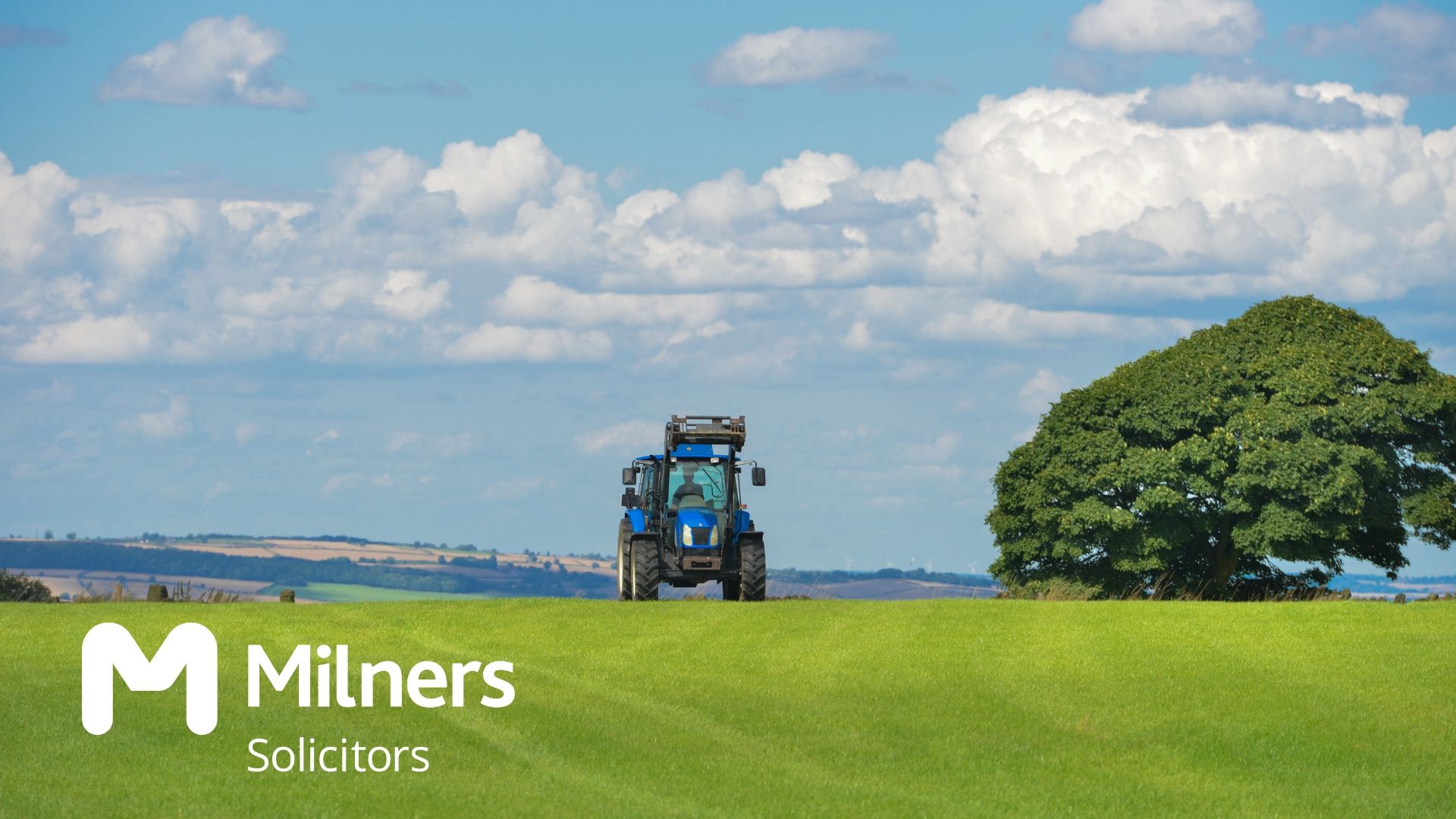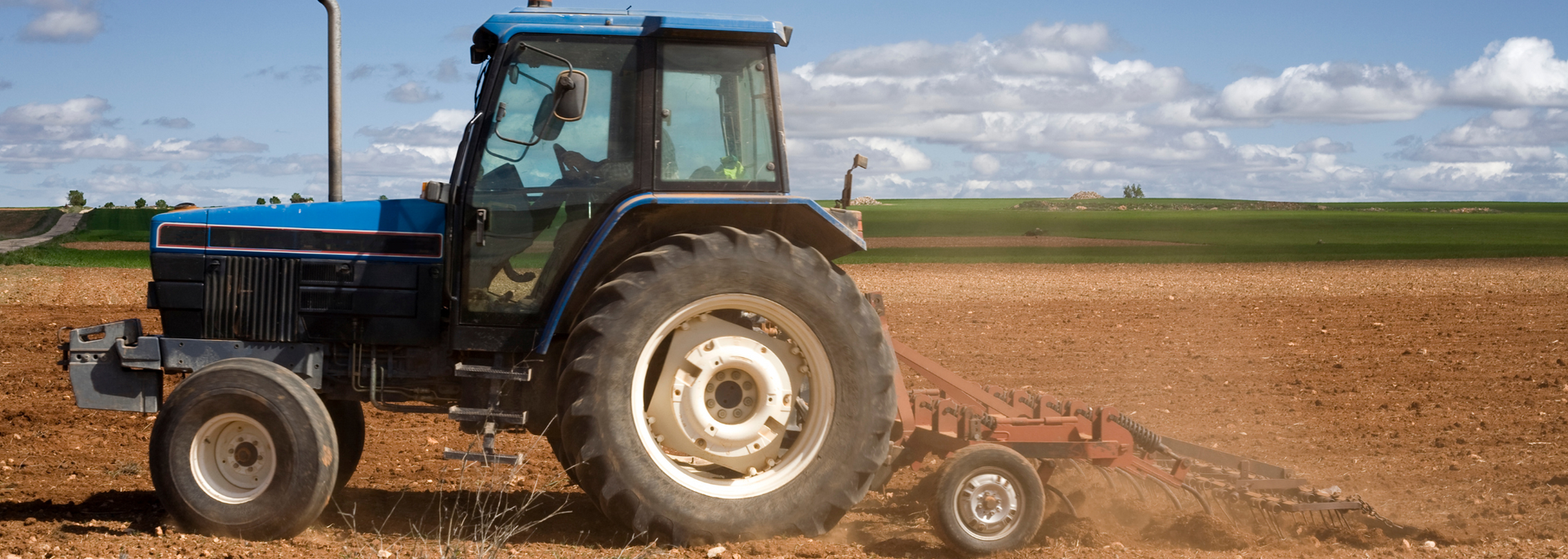Many farming partnerships operate without a written agreement. This can lead to disputes down the line. Learn how to avoid these common pitfalls.

Farming partnerships can bring a lot of value – whether on family-run farms, where the next generation can bring their talents, or among businesspeople as a way to pool skills and resources and deepen their skills.
But like any partnership, there are potential pitfalls. And because they're connected with the business's assets, they can lead to long-drawn-out disputes over money.
For this reason, it can be wise to keep these pitfalls in mind when entering into a
farming partnership – and, especially, to seek expert legal advice about drawing up an agreement.
Blood may be thicker than water, but a handshake isn't enough – even among loved ones. If a younger member decides to exit the partnership or an older member wants to contribute less, you could be looking at a costly dispute.
In this article, we take a look at the most common problems faced by people in farming partnerships – and how to avoid them.
But first, do you need a partnership at all?
Do you need a farming partnership?
The simple answer to this is "no". Unlike companies or sole traders, a partnership is created automatically – it doesn't have to be registered.
When the makeup of the partnership changes, it's automatically dissolved and a new one is created for the remaining members. This means that the nature of the partnership changes as people leave, join or die.
But while you don't technically need a farming partnership, it can be advisable. You wouldn't take on a job without reading the contract – but many people in farming partnerships do something very similar.
This can lead to a number of problems down the line.
The consequences of not having a partnership agreement
Often people think that
families shouldn't be bound by legal duties. This is common not only in the
agricultural sector but also at the level of family duties.

Even if the partnership involves people outside the family, you might think that a written agreement shows a lack of trust.
But the truth is that circumstances change – and these changes can have legal consequences if the nature of the agreement is unclear.
This is partly because of the
Partnership Act 1890. In the absence of an agreement, its provisions apply by default.
First of all, this means that the partnership dissolves in the event of death. In practice, this can lead to frozen bank accounts and a partnership in limbo.
Second, the Act stipulates that all partners are entitled to an equal share of profits – and it doesn't matter if one person has invested more time or more money in the venture.
If you want to avoid these default provisions, you need a written partnership agreement.
The importance of regular reviews
Businesses change – but, too often, the agreement doesn't change with them. That's why it's recommended to review the agreement regularly – every two or three years, say.
But the agreement shouldn't only be reviewed as a biennial or triennial box-ticking exercise. It should also happen whenever there's a significant change to the structure of the business.
This could include
- the business diversifying
- a new injection of cash or capital
- a change to relevant tax rules
- a new partner joining or leaving
- a partner getting married or divorced
- a partner dying
It can also be prudent to hold regular partner meetings – semi-formal affairs where you sit down together and discuss any issues relating to the business's direction.
This is a form of
self-mediation – by encouraging open communication, you're in a better position to resolve issues as they arise. This way, they're less likely to spiral out of control and land you in legal hot water.
Who owns the assets?
The division of assets in a farming partnership is complex. Some assets may belong to the partnership, whereas others belong to individuals.
This applies to everything from land, buildings and machinery to crops, livestock and even fishing rights.

The ownership of assets is important. It can affect the age at which a partner can retire or leave the partnership. It can complicate succession planning. And it can lead to disputes over taxation.
For these reasons, it can be sensible to spell out asset ownership clearly – so that if there's a change of circumstance, you have something solid to refer to.
As well as a partnership agreement, accountancy can play a positive role. Making sure that property capital is included in your annual accounts helps to clearly allocate assets among the members of the partnership.
Is the profit share fair?
Farming partnerships are a bit like being in a marriage – or a band. If one or more partners believe that they're pulling their weight more than others, they may get resentful if their efforts aren't reflected in their share of the profits.
The same goes for roles and responsibilities. As with a marriage, roles can be fallen into rather than explicitly agreed on. Fast forward a decade or more and there's a lot of resentment to work around.
A fair division of labour and a fair share of profits are crucial to a healthy partnership – and these can be reflected in your written partnership agreement.
The bottom line
Farming partnerships can be tricky – especially, but not only, when families are involved.
It can be advisable to get high-quality legal guidance early on. This way, you're not haunted by a poorly written or non-existence partnership agreement when your circumstances change.
A well-written partnership helps to nip disputes in the bud and clarifies what will happen in the event of a rift or bereavement.
Think of it as a form of insurance. You might baulk at the legal costs, but it can save you a huge amount of stress, time and money in the long run.
Do you need help with a farming partnership agreement? Our team of experienced, straight-talking
farming solicitors are happy to help.
Get in touch today for a free, no-obligation consultation.
![Judgment has been handed down this week in Transwaste Recycling and Aggregates Ltd [2024] EWHC 330 (](https://lirp.cdn-website.com/8f80b851/dms3rep/multi/opt/o+and+s-1920w.JPG)
Pontefract Office
9A High Street
Upton, Pontefract
West Yorkshire
WF9 1HR
Darlington Office
Close Thornton Solicitors
31 Houndgate
Darlington
DL1 5RH
Authorised and regulated by the Solicitors Regulation Authority – Milners, SRA # 52317 | VAT number: 170144301
All Rights Reserved | Milners Solicitors
Our branches
This is a paragraph. Writing in paragraphs lets visitors find what they are looking for quickly and easily.
This is a paragraph. Writing in paragraphs lets visitors find what they are looking for quickly and easily.
This is a paragraph. Writing in paragraphs lets visitors find what they are looking for quickly and easily.
This is a paragraph. Writing in paragraphs lets visitors find what they are looking for quickly and easily.
This is a paragraph. Writing in paragraphs lets visitors find what they are looking for quickly and easily.
Harrogate Office
11A Princes Square
Harrogate
North Yorkshire
HG1 1ND
01423 530 103
Darlington Office
Close Thornton Solicitors
31 Houndgate
Darlington
DL1 5RH
01325 466461
Pontefract Office
9A High Street
Upton, Pontefract
West Yorkshire
WF9 1HR
01977 644 864


Authorised and regulated by the SRA, SRA ID 52317
Get tips from our business and personal law legal experts. Delivered to your inbox each week.










